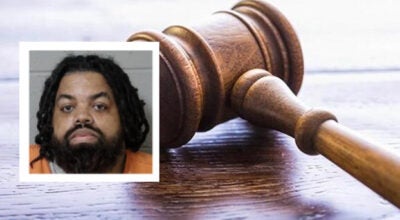SMC part-time student worker contribution controversy settled by governor
Published 9:52 am Thursday, January 3, 2019
DOWAGIAC — A controversy at Southwestern Michigan College that lasted through the majority of 2018 has finally come to a resolution.
On Dec. 28, Gov. Rick Snyder signed Public Act 512 that ended the controversy over whether the state’s 28 community colleges — including SMC — should contribute to the state teachers’ retirement system, known as MPSERS, for part-time students who had worked on campus. The act clarifies that part-time student workers whose predominant relationship with a college is that of a student must not be put into the retirement program from this point forward.
The news of the passing of PA 512 comes as a relief to SMC’s President David Mathews, who said that the act is a weight off his shoulders.
“It’s really good to be done with,” Mathews said. “This has taken a lot of time and energy and has been a real time sink. It’s just great to have this all behind us now.”
Though 28 of Michigan’s community colleges owed money into the state retirement fund for part-time student workers, SMC became one of the most visible and talked about colleges relating to the MPSERS controversy. In February, Office of the Auditor General accused the college of misconduct in the case of part-time student employment retirement payments and alleged that from July 1, 2010, through April 28, 2017, SMC intentionally excluded approximately 500 part-time student employees from enrollment into MPSERS. The audit also alleged that the college could owe between $388,600 and $10.4 million in fees and interest for not including part-time student workers into the retirement fund. The report prompted community outrage, a lawsuit by SMC against the Auditor General over its right to audit the college and legislation at the state level was introduced to help solve the issue.
The first piece of legislation to solve this statewide problem, PA 328 of 2018 was passed in July of 2018. The act clarified that part-time students who work on campus as student workers should not be enrolled into the retirement system. Because of the prior ambiguity, PA 328 also established a mandatory report from the Office of Retirement Services to the legislature detailing community colleges’ enrollment, or non-enrollment, of part-time students into the retirement plan during each of the past four school years. The findings of the September study revealed that, in total, Michigan community colleges owed more than $7 million in unpaid contributions over the four-year time period. SMC was estimated to owe $257,569, which the college paid during the 2018 calendar year to avoid late fees and other penalties, according to Mathews.
The act signed by the governor last week confirmed that all 28 of Michigan’s community colleges are required to pay the four years of contributions as well as interest and late fees as determined by the September ORS study for its part-time student workers not enrolled over that period and made it clear that other than that amount, no further penalties would be assessed.
The act also allowed for an opt-in window for students who over the last 30-plus years had worked on-campus at a Michigan community college as part-time students will be able to get service credit for their amount of what the ORS considers to be eligible service. Those who do opt-in will be required to pay their employee contribution share, and the community college where they worked will pay the employer share of their retirement contributions.
Now that PA 512 has been passed, Mathews said SMC would do everything it can to put the controversy behind it, which includes withdrawing its lawsuit against the Auditor General.
“[The lawsuit] was the only mechanism we had to stop from being singled out and treated unfairly, but now that the thing has gotten the light of day that we asked for, we are [withdrawing the lawsuit],” he said. “We still think Auditor General, as a matter of law, doesn’t have authority outside of state agencies, but we are not going to spend our money trying to straighten out state government. This issue is solved, so we are working to withdraw our lawsuit.”
Going forward, Mathews said the college is going to reassure the community that the issue has been resolved and will shift its focus back to its mission, which is to provide education to southwest Michigan.
“We can now say, ‘Look, don’t fear. This thing is done with,’” Mathews said. “We can now move forward and do what everyone on campus wants, which is to serve students.”






